- Home
- J. K. Rowling
Harry Potter and the Deathly Hallows hp-7 Page 11
Harry Potter and the Deathly Hallows hp-7 Read online
Page 11
“Nice,” said Ron, as with one final flourish of her wand, Hermione turned the leaves on the crabapple tree to gold. “You’ve really got an eye for that sort of thing.”
“Thank you, Ron!” said Hermione, looking both pleased and a little confused. Harry turned away, smiling to himself. He had a funny notion that he would find a chapter on compliments when he found time to peruse his copy of Twelve Fail-Safe Ways to Charm Witches; he caught Ginny’s eye and grinned at her before remembering his promise to Ron and hurriedly striking up a conversation with Monsieur Delacour.
“Out of the way, out of the way!” sang Mrs. Weasley, coming through the gate with what appeared to be a giant, beach-ball-sized Snitch floating in front of her. Seconds later Harry realized that it was his birthday cake, which Mrs. Weasley was suspending with her wand, rather than risk carrying it over the uneven ground. When the cake had finally landed in the middle of the table, Harry said,
“That looks amazing, Mrs. Weasley.”
“Oh, it’s nothing, dear,” she said fondly. Over her shoulder, Ron gave Harry the thumbs-up and mouthed, Good one.
By seven o’clock all the guests had arrived, led into the house by Fred and George, who had waited for them at the end of the lane. Hagrid had honored the occasion by wearing his best, and horrible, hairy brown suit. Although Lupin smiled as he shook Harry’s hand, Harry thought he looked rather unhappy. It was all very odd; Tonks, beside him, looked simply radiant.
“Happy birthday, Harry,” she said, hugging him tightly.
“Seventeen, eh!” said Hagrid as he accepted a bucket-sized glass of wine from Fred. “Six years ter the day since we met, Harry, d’yeh remember it?”
“Vaguely,” said Harry, grinning up at him. “Didn’t you smash down the front door, give Dudley a pig’s tail, and tell me I was a wizard?”
“I forge’ the details,” Hagrid chortled. “All righ’, Ron, Hermione?”
“We’re fine,” said Hermione. “How are you?”
“Ar, not bad. Bin busy, we got some newborn unicorns. I’ll show yeh when yeh get back—” Harry avoided Ron’s and Hermione’s gazes as Hagrid rummaged in his pocket. “Here. Harry—couldn’t think what ter get teh, but then I remembered this.” He pulled out a small, slightly furry drawstring pouch with a long string, evidently intended to be worn around the neck. “Mokeskin. Hide anythin’ in there an’ no one but the owner can get it out. They’re rare, them.”
“Hagrid, thanks!”
“’S’nothin’,” said Hagrid with a wave of a dustbin-lid-sized hand. “An’ there’s Charlie! Always liked him—hey! Charlie!”
Charlie approached, running his hand slightly ruefully over his new, brutally short haircut. He was shorter than Ron, thickset, with a number of burns and scratches up his muscley arms.
“Hi, Hagrid, how’s it going?”
“Bin meanin’ ter write fer ages. How’s Norbert doin’?”
“Norbert?” Charlie laughed. “The Norwegian Ridgeback? We call her Norberta now.”
“Wha—Norbert’s a girl?”
“Oh yeah,” said Charlie.
“How can you tell?” asked Hermione.
“They’re a lot more vicious,” said Charlie. He looked over his shoulder and dropped his voice. “Wish Dad would hurry up and get here. Mum’s getting edgy.”
They all looked over at Mrs. Weasley. She was trying to talk to Madame Delacour while glancing repeatedly at the gate.
“I think we’d better start without Arthur,” she called to the garden at large after a moment or two. “He must have been held up at—oh!”
They all saw it at the same time: a streak of light that came flying across the yard and onto the table, where it resolved itself into a bright silver weasel, which stood on its hind legs and spoke with Mr. Weasley’s voice.
“Minister of Magic coming with me.”
The Patronus dissolved into thin air, leaving Fleur’s family peering in astonishment at the place where it had vanished.
“We shouldn’t be here,” said Lupin at once. “Harry—I’m sorry—I’ll explain some other time—”
He seized Tonks’s wrist and pulled her away; they reached the fence, climbed over it, and vanished from sight. Mrs. Weasley looked bewildered.
“The Minister—but why—? I don’t understand—”
But there was no time to discuss the matter; a second later, Mr. Weasley had appeared out of thin air at the gate, accompanied by Rufus Scrimgeour, instantly recognizable by his mane of grizzled hair.
The two newcomers marched across the yard toward the garden and the lantern-lit table, where everybody sat in silence, watching them draw closer. As Scrimgeour came within range of the lantern light, Harry saw that he looked much older than the last time that had met, scraggy and grim.
“Sorry to intrude,” said Scrimgeour, as he limped to a halt before the table. “Especially as I can see that I am gate-crashing a party.”
His eyes lingered for a moment on the giant Snitch cake.
“Many happy returns.”
“Thanks,” said Harry.
“I require a private word with you,” Scrimgeour went on. “Also with Mr. Ronald Weasley and Miss Hermione Granger.”
“Us?” said Ron, sounding surprised. “Why us?”
“I shall tell you that when we are somewhere more private,” said Scrimgeour. “Is there such a place?” he demanded of Mr. Weasley.
“Yes, of course,” said Mr. Weasley, who looked nervous. “The, er, sitting room, why don’t you use that?”
“You can lead the way,” Scrimgeour said to Ron. “There will be no need for you to accompany us, Arthur.”
Harry saw Mr. Weasley exchange a worried look with Mrs. Weasley as he, Ron, and Hermione stood up. As they led the way back to the house in silence, Harry knew that the other two were thinking the same as he was; Scrimgeour must, somehow, had learned that the three of them were planning to drop out of Hogwarts.
Scrimgeour did not speak as they all passed through the messed kitchen and into the Burrow’s sitting room. Although the garden had been full of soft golden evening light, it was already dark in here; Harry flicked his wand at the oil lamps as he entered and they illuminated the shabby but cozy room. Scrimgeour sat himself in the sagging armchair that Mr. Weasley normally occupied, leaving Harry, Ron, and Hermione to squeeze side by side onto the sofa. Once they had done so, Scrimgeour spoke.
“I have some questions for the three of you, and I think it will be best if we do it individually. If you two”—he pointed at Harry and Hermione—“can wait upstairs, I will start with Ronald.”
“We’re not going anywhere,” said Harry, while Hermione nodded vigorously. “You can speak to us together, or not at all.”
Scrimgeour gave Harry a cold, appraising look. Harry had the impression that the Minister was wondering whether it was worthwhile opening hostilities this early.
“Very well then, together,” he said, shrugging. He cleared his throat. “I am here, as I’m sure you know, because of Albus Dumbledore’s will.”
Harry, Ron, and Hermione looked at one another.
“A surprise, apparently! You were not aware then that Dumbledore had left you anything?”
“A—all of us?” said Ron, “Me and Hermione too?”
“Yes, all of—”
But Harry interrupted.
“Dumbledore died over a month ago. Why has it taken this long to give us what he left us?”
“Isn’t it obvious?” said Hermione, before Scrimgeour could answer. “They wanted to examine whatever he’s left us. You had no right to do that!” she said, and her voice trembled slightly.
“I had every right,” said Scrimgeour dismissively. “The Decree for Justifiable Confiscation gives the Ministry the power the confiscate the contents of a will—”
“That law was created to stop wizards passing on Dark artifacts,” said Hermione, “and the Ministry is supposed to have powerful evidence that the deceased’s possessions are illegal befo
re seizing them! Are you telling me that you thought Dumbledore was trying to pass us something cursed?”
“Are you planning to follow a career in Magical Law, Miss Granger?” asked Scrimgeour.
“No, I’m not,” retorted Hermione. “I’m hoping to do some good in the world!”
Ron laughed. Scrimgeour’s eyes flickered toward him and away again as Harry spoke.
“So why have you decided to let us have our things now? Can’t think of a pretext to keep them?”
“No, it’ll be because thirty-one days are up,” said Hermione at once. “They can’t keep the objects longer than that unless they can prove they’re dangerous. Right?”
“Would you say you were close to Dumbledore, Ronald?” asked Scrimgeour, ignoring Hermione.
Ron looked startled.
“Me? Not—not really… It was always Harry who…”
Ron looked around at Harry and Hermione, to see Hermione giving him a stop—talking—now! sort of look, but the damage was done; Scrimgeour looked as though he had heard exactly what he had expected, and wanted, to hear. He swooped like a bird of prey upon Ron’s answer.
“If you were not very close to Dumbledore, how do you account for the fact that he remembered you in his will? He made exceptionally few personal bequests. The vast majority of his possessions—his private library, his magical instruments, and other personal effects—were left to Hogwarts. Why do you think you were singled out?”
“I… dunno,” said Ron. “I… when I say we weren’t close… I mean, I think he liked me…”
“You’re being modest, Ron,” said Hermione. “Dumbledore was very fond of you.”
This was stretching the truth to breaking point; as far as Harry knew, Ron and Dumbledore had never been alone together, and direct contact between them had been negligible. However, Scrimgeour did not seem to be listening. He put his hand inside his cloak and drew out a drawstring pouch much larger than the one Hagrid had given Harry. From it, he removed a scroll of parchment which he unrolled and read aloud.
“‘The Last Will and Testament of Albus Percival Wulfric Brian Dumbledore’… Yes, here we are… ‘To Ronald Bilius Weasley, I leave my Deluminator, in the hope that he will remember me when he uses it.’”
Scrimgeour took from the bag an object that Harry had seen before: It looked something like a silver cigarette lighter, but it had, he knew, the power to suck all light from a place, and restore it, with a simple click. Scrimgeour leaned forward and passed the Deluminator to Ron, who took it and turned it over in the fingers looking stunned.
“That is a valuable object,” said Scrimgeour, watching Ron. “It may even be unique. Certainly it is of Dumbledore’s own design. Why would he have left you an item so rare?”
Ron shook his head, looking bewildered.
“Dumbledore must have taught thousands of students,” Scrimgeour persevered. “Yet the only ones he remembered in his will are you three. Why is that? To what use did he think you would put to the Deluminator, Mr. Weasley?”
“Put out lights, I s’pose,” mumbled Ron. “What else could I do with it?”
Evidently Scrimgeour had no suggestions. After squinting at Ron for a moment or tow, he turned back to Dumbledore’s will.
“‘To Miss Hermione Jean Granger, I leave my copy of The Tales of Beedle the Bard, in the hope that she will find it entertaining and instructive.’”
Scrimgeour now pulled out of the bag a small book that looked as ancient as the copy of Secrets of the Darkest Art upstairs. Its binding was stained and peeling in places. Hermione took it from Scrimgeour without a word. She held the book in her lap and gazed at it. Harry saw that the title was in runes; he had never learned to read them. As he looked, a tear splashed onto the embossed symbols.
“Why do you think Dumbledore left you that book, Miss Granger?” asked Scrimgeour.
“He… he knew I liked books,” said Hermione in a thick voice, mopping her eyes with her sleeve.
“But why that particular book?”
“I don’t know. He must have thought I’d enjoy it.”
“Did you ever discuss codes, or any means of passing secret messages, with Dumbledore?”
“No, I didn’t,” said Hermione, still wiping her eyes on her sleeve. “And if the Ministry hasn’t found any hidden codes in this book in thirty-one days, I doubt that I will.”
She suppressed a sob. They were wedged together so tightly that Ron had difficulty extracting his arm to put it around Hermione’s shoulders. Scrimgeour turned back to the will.
“‘To Harry James Potter,’” he read, and Harry’s insides contracted with a sudden excitement, “‘I leave the Snitch he caught in his first Quidditch match at Hogwarts, as a reminder of the rewards of perseverance and skill.’”
As Scrimgeour pulled out the tiny, walnut-sized golden ball, its silver wings fluttered rather feebly, and Harry could not help feeling a definite sense of anticlimax.
“Why did Dumbledore leave you this Snitch?” asked Scrimgeour.
“No idea,” said Harry. “For the reasons you just read out, I suppose… to remind me what you can get if you… persevere and whatever it was.”
“You think this a mere symbolic keepsake, then?”
“I suppose so,” said Harry. “What else could it be?”
“I’m asking the questions,” said Scrimgeour, shifting his chair a little closer to the sofa. Dusk was really falling outside now; the marquee beyond the windows towered ghostly white over the hedge.
“I notice that your birthday cake is in the shape of a Snitch,” Scrimgeour said to Harry. “Why is that?”
Hermione laughed derisively.
“Oh, it can’t be a reference to the fact Harry’s a great Seeker, that’s way too obvious,” she said. “There must be a secret message from Dumbledore hidden in the icing!”
“I don’t think there’s anything hidden in the icing,” said Scrimgeour, “but a Snitch would be a very good hiding place for a small object. You know why, I’m sure?”
Harry shrugged, Hermione, however, answered. Harry thought that answering questions correctly was such a deeply ingrained habit she could not suppress the urge.
“Because Snitches have flesh memories,” she said.
“What?” said Harry and Ron together; both considered Hermione’s Quidditch knowledge negligible.
“Correct,” said Scrimgeour. “A Snitch is not touched by bare skin before it is released, not even by the maker, who wears gloves. It carries an enchantment by which it can identify the first human to lay hands upon it, in case of a disputed capture. This Snitch”—he held up the tiny golden ball—“will remember your touch, Potter. It occurs to me that Dumbledore, who had prodigious magical skill, whatever his other faults, might have enchanted this Snitch so that it will open only for you.”
Harry’s heart was beating rather fast. He was sure that Scrimgeour was right. How could he avoid taking the Snitch with his bare hand in front of the Minister?
“You don’t say anything,” said Scrimgeour. “Perhaps you already know what the Snitch contains?”
“No,” said Harry, still wondering how he could appear to touch the Snitch without really doing so. If only he knew Legilimency, really knew it, and could read Hermione’s mind; he could practically hear her brain whizzing beside him.
“Take it,” said Scrimgeour quietly.
Harry met the Minister’s yellow eyes and knew he had no option but to obey. He held out his hand, and Scrimgeour leaned forward again and place the Snitch, slowly and deliberately, into Harry’s palm.
Nothing happened. As Harry’s fingers closed around the Snitch, its tired wings fluttered and were still. Scrimgeour, Ron, and Hermione continued to gaze avidly at the now partially concealed ball, as if still hoping it might transform in some way.
“That was dramatic,” said Harry coolly.
Both Ron and Hermione laughed.
“That’s all, then, is it?” asked Hermione, making to raise herself off the sofa
.
“Not quite,” said Scrimgeour, who looked bad tempered now. “Dumbledore left you a second bequest, Potter.”
“What is it?” asked Harry, excitement rekindling.
Scrimgeour did not bother to read from the will this time.
“The sword of Godric Gryffindor,” he said.
Hermione and Ron both stiffened. Harry looked around for a sign of the ruby-encrusted hilt, but Scrimgeour did not pull the sword from the leather pouch, which in any case looked much too small to contain it.
“So where is it?” Harry asked suspiciously.
“Unfortunately,” said Scrimgeour, “that sword was not Dumbledore’s to give away. The sword of Godric Gryffindor is an important historical artifact, and as such, belongs—”
“It belongs to Harry!” said Hermione hotly. “It chose him, he was the one who found it, it came to him out of the Sorting Hat—”
“According to reliable historical sources, the sword may present itself to any worthy Gryffindor,” said Scrimgeour. “That does not make it the exclusive property of Mr. Potter, whatever Dumbledore may have decided.” Scrimgeour scratched his badly shaven cheek, scrutinizing Harry. “Why do you think—?”
“—Dumbledore wanted to give me the sword?” said Harry, struggling to keep his temper. “Maybe he thought it would look nice on my wall.”
“This is not a joke, Potter!” growled Scrimgeour. “Was it because Dumbledore believed that only the sword of Godric Gryffindor could defeat the Heir of Slytherin? Did he wish to give you that sword, Potter, because he believed, as do many, that you are the one destined to destroy He-Who-Must-Not-Be-Named?”
“Interesting theory,” said Harry. “Has anyone ever tried sticking a sword in Voldemort? Maybe the Ministry should put some people onto that, instead of wasting their time stripping down Deluminators or covering up breakouts from Azkaban. So this is what you’ve been doing, Minister, shut up in your office, trying to break open a Snitch? People are dying—I was nearly one of them—Voldemort chased me across three countries, he killed Mad-Eye Moody, but there’s no word about any of that from the Ministry, has there? And you still expect us to cooperate with you!”

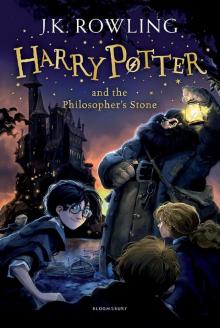 Harry Potter and the Philosophers Stone
Harry Potter and the Philosophers Stone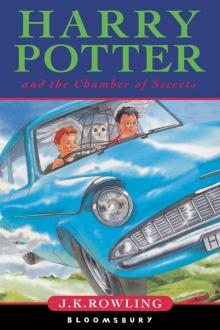 Harry Potter and the Chamber of Secrets
Harry Potter and the Chamber of Secrets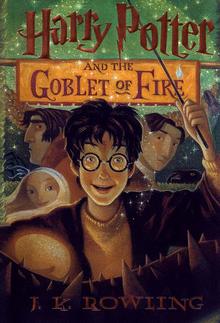 Harry Potter and the Goblet of Fire
Harry Potter and the Goblet of Fire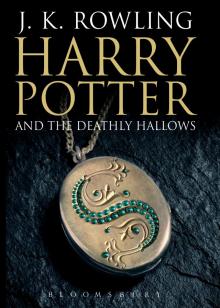 Harry Potter and the Deathly Hallows
Harry Potter and the Deathly Hallows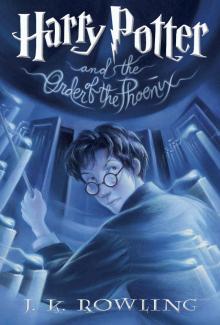 Harry Potter and the Order of the Phoenix
Harry Potter and the Order of the Phoenix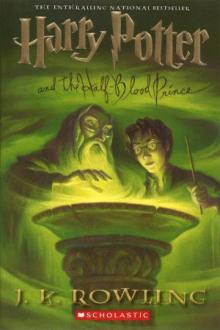 Harry Potter and the Half-Blood Prince
Harry Potter and the Half-Blood Prince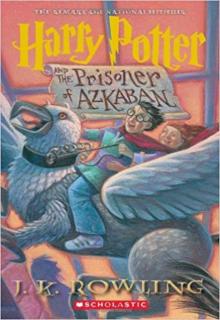 Harry Potter and the Prisoner of Azkaban
Harry Potter and the Prisoner of Azkaban Fantastic Beasts and Where to Find Them
Fantastic Beasts and Where to Find Them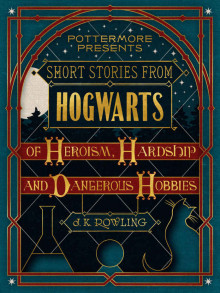 Short Stories from Hogwarts of Heroism, Hardship and Dangerous Hobbies
Short Stories from Hogwarts of Heroism, Hardship and Dangerous Hobbies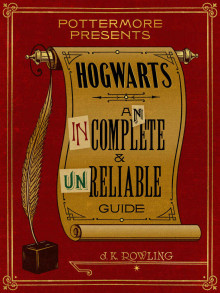 Hogwarts: An Incomplete and Unreliable Guide
Hogwarts: An Incomplete and Unreliable Guide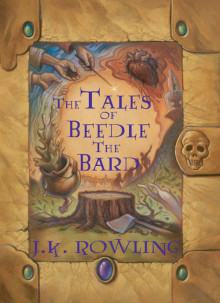 The Tales of Beedle the Bard
The Tales of Beedle the Bard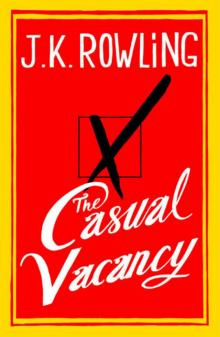 The Casual Vacancy
The Casual Vacancy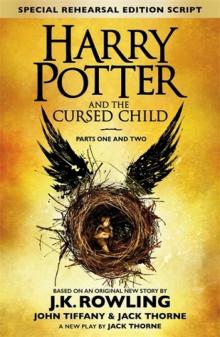 Harry Potter and the Cursed Child
Harry Potter and the Cursed Child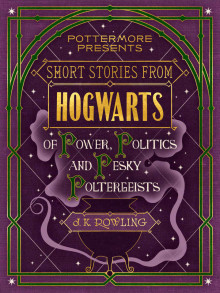 Short Stories from Hogwarts of Power, Politics and Pesky Poltergeists
Short Stories from Hogwarts of Power, Politics and Pesky Poltergeists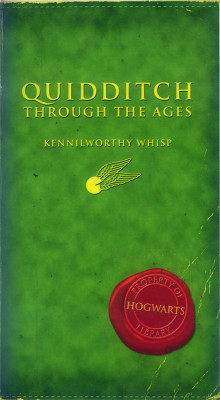 Quidditch Through the Ages
Quidditch Through the Ages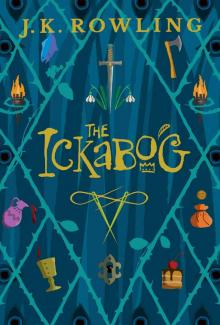 The Ickabog
The Ickabog![Fantastic Beasts, The Crimes of Grindelwald [UK] Read online](http://i1.bookreadfree.com/i/03/19/fantastic_beasts_the_crimes_of_grindelwald_uk_preview.jpg) Fantastic Beasts, The Crimes of Grindelwald [UK]
Fantastic Beasts, The Crimes of Grindelwald [UK]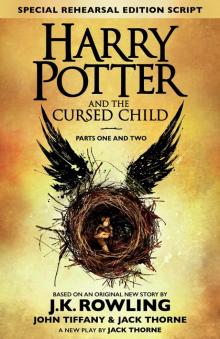 Harry Potter and the Cursed Child: Parts One and Two
Harry Potter and the Cursed Child: Parts One and Two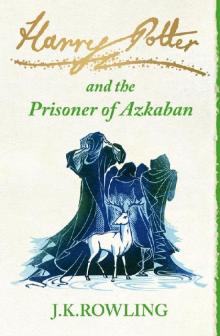 The Prisoner of Azkaban
The Prisoner of Azkaban Fantastic Beasts: The Crimes of Grindelwald
Fantastic Beasts: The Crimes of Grindelwald The Hogwarts Library Collection
The Hogwarts Library Collection Short Stories from Hogwarts of Heroism, Hardship and Dangerous Hobbies (Kindle Single) (Pottermore Presents)
Short Stories from Hogwarts of Heroism, Hardship and Dangerous Hobbies (Kindle Single) (Pottermore Presents)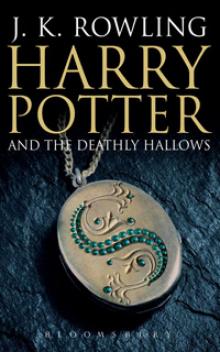 Harry Potter and the Deathly Hallows hp-7
Harry Potter and the Deathly Hallows hp-7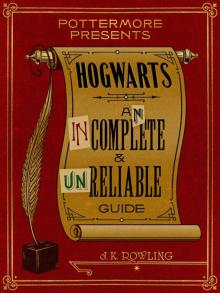 Hogwarts: An Incomplete and Unreliable Guide (Kindle Single) (Pottermore Presents)
Hogwarts: An Incomplete and Unreliable Guide (Kindle Single) (Pottermore Presents)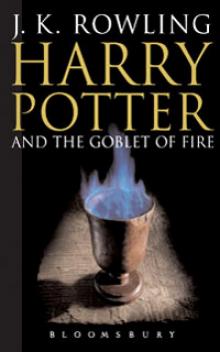 Harry Potter and the Goblet of Fire hp-4
Harry Potter and the Goblet of Fire hp-4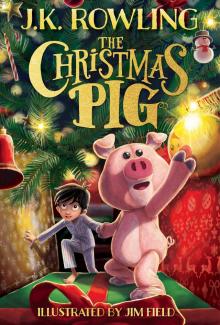 The Christmas Pig
The Christmas Pig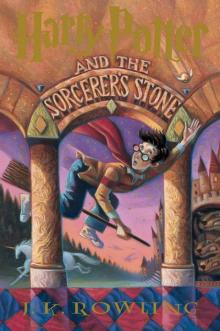 Harry Potter and the Sorcerer's Stone
Harry Potter and the Sorcerer's Stone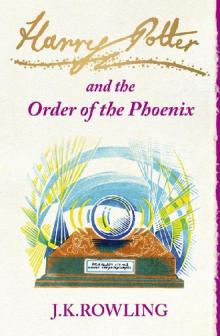 The Order of the Phoenix
The Order of the Phoenix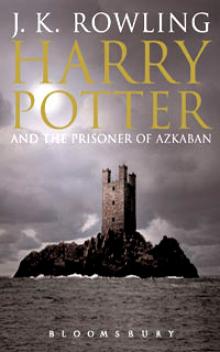 Harry Potter and the Prisoner of Azkaban hp-3
Harry Potter and the Prisoner of Azkaban hp-3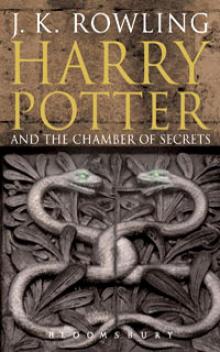 Harry Potter and the Chamber of Secrets hp-2
Harry Potter and the Chamber of Secrets hp-2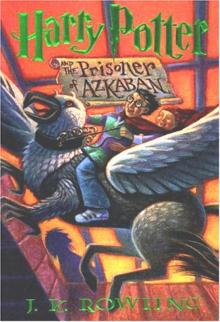 HP 3 - Harry Potter and the Prisoner of Azkaban
HP 3 - Harry Potter and the Prisoner of Azkaban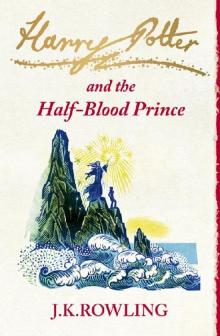 The Half-Blood Prince
The Half-Blood Prince The Hogwarts Collection
The Hogwarts Collection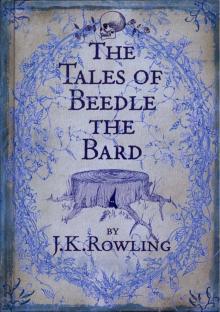 Tales of Beedle the Bard
Tales of Beedle the Bard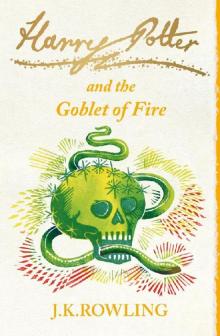 The Goblet of Fire
The Goblet of Fire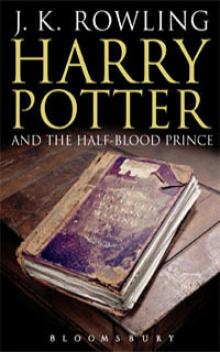 Harry Potter and the Half-Blood Prince hp-6
Harry Potter and the Half-Blood Prince hp-6 Short Stories from Hogwarts of Power, Politics and Pesky Poltergeists (Kindle Single) (Pottermore Presents)
Short Stories from Hogwarts of Power, Politics and Pesky Poltergeists (Kindle Single) (Pottermore Presents)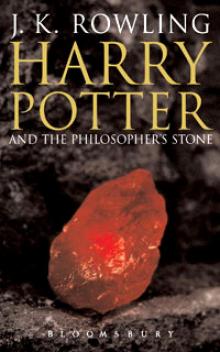 Harry Potter and the Sorcerer's Stone hp-1
Harry Potter and the Sorcerer's Stone hp-1